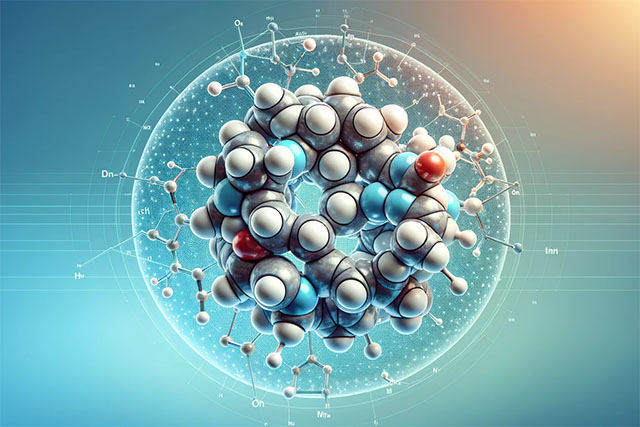For many individuals, especially during their growing years, achieving greater height is often a coveted goal. Among the various supplements claimed to promote physical development, creatine has garnered attention for its potential to influence height. This raises an intriguing question: can creatine consumption actually contribute to increased stature? In this exploration, we delve into the scientific evidence surrounding the relationship between creatine intake and height growth, aiming to uncover the truth behind this intriguing claim.
What is creatine?
Creatine is a naturally occurring compound that plays a crucial role in the energy production processes of cells, particularly in high-intensity, short-duration activities, like weightlifting, sprinting, and other forms of intense physical exercise. It is synthesized in the body from amino acids, primarily arginine, glycine, and methionine, and is stored in muscles.
The primary function of creatine is to help regenerate adenosine triphosphate (ATP), which is the primary energy currency of cells. During intense physical activities, ATP is rapidly consumed, and creatine phosphate donates a phosphate group to ADP (adenosine diphosphate) to quickly regenerate ATP. This rapid ATP regeneration allows muscles to sustain short bursts of high-intensity effort.
Athletes and bodybuilders often use creatine supplements to increase their muscle’s creatine stores, which can enhance their performance in activities that require explosive power and strength. Creatine supplements are available in various forms, such as creatine monohydrate, creatine ethyl ester, and others, with creatine monohydrate being the most common and well-studied form.
What are some of the benefits of creatine?
Creatine is a popular dietary supplement with several potential benefits, particularly in the realm of sports and exercise. Here are some of the benefits of creatine:
Improved exercise performance: Creatine is most well-known for its ability to enhance exercise performance, especially in activities that involve short bursts of high-intensity effort, such as weightlifting, sprinting, and jumping. It can increase strength, power, and endurance, allowing individuals to train harder and potentially achieve better results.
Increased muscle mass: Creatine supplementation can lead to an increase in muscle mass over time, primarily through an increase in water content within muscle cells and an improvement in protein synthesis. This can be particularly beneficial for athletes and bodybuilders looking to build or maintain muscle.
Enhanced muscle recovery: Creatine may help reduce muscle damage and inflammation following intense exercise. This can lead to faster recovery between training sessions and reduced soreness.
Brain health: Some studies suggest that creatine may have cognitive benefits, potentially improving brain function and memory, especially in tasks that require short-term memory and quick thinking. It may also have neuroprotective properties and could play a role in conditions, like Parkinson’s disease and depression, although more research is needed.
Potential benefits for certain medical conditions: Creatine supplementation may be beneficial for individuals with certain medical conditions, such as muscular dystrophy, where it can help maintain muscle function, and some neurological diseases, like Huntington’s disease and amyotrophic lateral sclerosis (ALS).
Does creatine make you taller?
Creatine consumption is not likely to have a substantial impact on height. Your height is mostly determined by genetics and the growth plates in your bones. The closure of these growth plates in late adolescence or early adulthood typically signifies the end of vertical growth. Even with creatine or other nutritional supplements, there’s no way to grow taller after the growth plates close.
Creatine is a compound primarily known for its role in improving muscle performance and strength, but it does not have any impact on bone growth or height. If you have concerns about your height or growth, it’s best to consult with a healthcare professional who can assess your individual situation and provide guidance.
How to use creatine?
Using creatine effectively involves a specific dosing strategy to maximize its benefits. Here’s a general guide on how to use creatine:

Loading phase (Optional):
Some people choose to start with a loading phase to saturate their muscles with creatine quickly. During this phase, take around 20 grams of creatine per day, divided into 4 doses (e.g., 5 grams each), for 5-7 days.
Maintenance phase
After the loading phase (or if you choose not to load), switch to a maintenance phase. Take 3-5 grams of creatine per day. This smaller daily dose is sufficient to maintain elevated creatine levels in your muscles.
Timing
Creatine can be taken at any time of day, but many people prefer taking it either before or after a workout. Taking it with a meal or with a source of carbohydrates may enhance its absorption.
Mixing
Creatine monohydrate, the most common form of creatine, can be mixed with water, juice, or a carbohydrate-containing beverage. It’s essential to stir or shake it well to ensure it dissolves properly.
Hydration
Make sure to drink plenty of water when using creatine, as it may cause some people to retain water initially. Staying well-hydrated can help minimize any potential side effects.
Consistency
Consistency is key when using creatine. Take it regularly as part of your daily routine to maintain its effectiveness.
Cycle or continuous use (Optional)
Some people choose to cycle creatine by using it for a few months and then taking a break for a period before resuming. Others use it continuously, without cycling. There is no definitive consensus on whether cycling is necessary, so you can choose the approach that works best for you.
Consult a healthcare professional
Before starting creatine supplementation, especially if you have any underlying health conditions or concerns, it’s advisable to consult with a healthcare professional or registered dietitian for personalized guidance.
In conclusion,
Creatine is a commonly used supplement with some effects on physical performance. It may not significantly impact height, which is mostly determined by genetics and growth during adolescence. While creatine can be beneficial for sports and exercise, its relationship with height is not entirely clear. For optimal growth, focus on a balanced diet, regular physical activity, and responsible creatine use according to guidelines.

